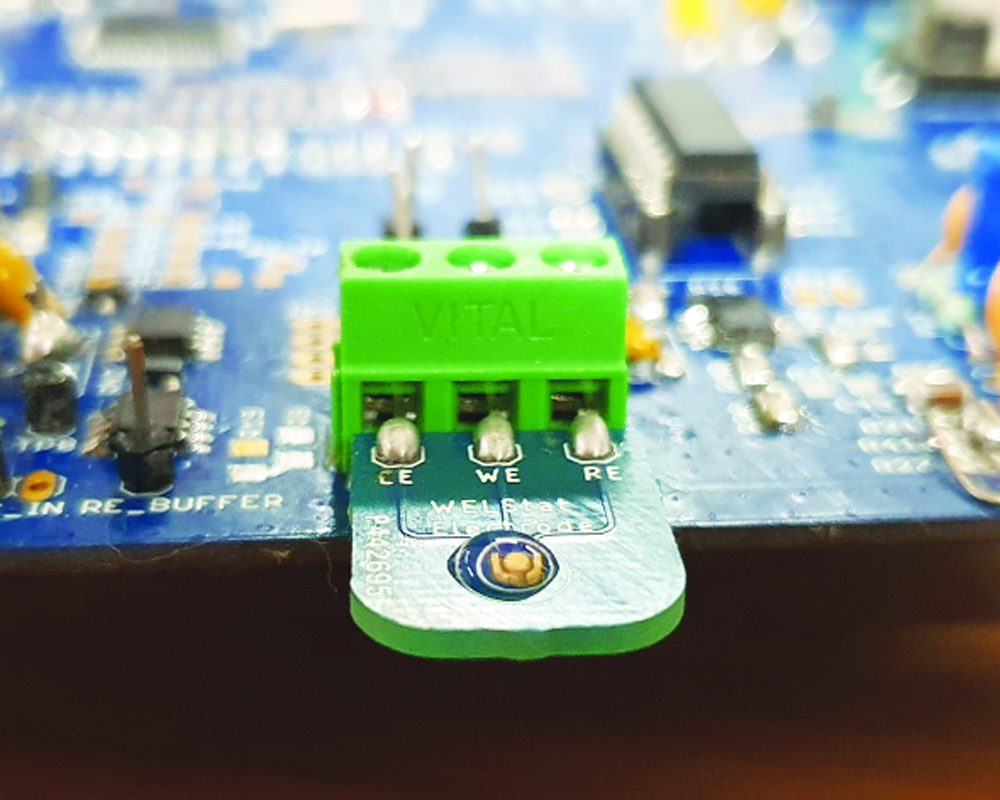MUSBA HASHMI speaks with DR ANDY WARD and DR SIDDHARTH TALLUR about the low-cost sensor that they have developed to trace COVID-19 in wastewater
It was only last week that the researchers at the Indian Institute of Technology (IIT) Gandhinagar has found the presence of Coronavirus in water. Whether the genes found were alive or dead is still a matter of investigation, but the fact in itself is enough to give red flags.
These findings may highlight the need for a device that can trace the presence of Coronavirus in water. While it may sound a distant dream, scientists from the University of Strathclyde and the Indian Institute of Technology (IIT) Bombay have demonstrated a low-cost sensor that can detect fragments of the virus responsible for COVID-19 within wastewater.
Dr Andy Ward, Chancellor’s Fellow in the Department of Civil & Environmental Engineering, University of Strathclyde, tells you that the design relies on the use of a well established PCR approach, which can detect the presence of genetic material at very low concentrations.
“We take advantage of the cheapest form of PCR — called end-point PCR — which does not depend upon expensive laboratory equipment or infrastructure. The PCR allows small quantities of the genetic material from the SARS-CoV-2 coronavirus to be amplified from wastewater. This is then placed upon an electrochemical sensor that we pioneered in order to identify whether or not the virus is present,” explains Ward.
He adds that monitoring wastewater like this provides a way to detect the presence of coronavirus quickly, without relying upon people to come forward for tests or have access to tests.
“By detecting Coronavirus in wastewater, we can target human diagnostic testing of the disease to make each test count more, and therefore stop new outbreaks at source. This is critical to stopping hospitals becoming overwhelmed and also helps prevent economically costly lockdowns as a last resort to stop the spread of the virus,” says Ward.
Dr Siddharth Tallur, Associate Professor in the Department of Electrical Engineering, IIT Bombay, tells you that the sensor is like a cartridge based instrument and each of them costs not more than Rs 40 per cartridge.
“This price is for the 200 cartridges that we got as of now. If we increase the production, we can even bring down the cost to as low as Rs 10 per cartridge,” says Tallur.
The team started working on the sensor, which still in the final development stage, in May of 2020.
“We want to give the sensor a few touch-ups like we want to introduce the quantity factor. As of now, the sensor can only find out the traces of the virus in wastewater, but can’t tell its quantity. This is something we are working on and hopefully should be able to achieve in a few months,” Tallur tells you.
Coming up with something as unique as this one may give many people hiccups, but for Ward and Tallur, their expertise came to their rescue and they were able to sail through without having to face too many setbacks.
“However, the biggest challenge was the timescales and the availability of reagents to support the work being carried out. At the start of the pandemic, these were particularly hard to come by, so we had to be innovative in the way that we made the sensor. This actually worked quite well and resulted in a design that can be made using resources available in India,” says Ward.
As to why such technologies when launched by big brands make headlines, but not when not-so-famous people do such big things, Tallur says, is because of lack of proper marketing.
“For scientists, to communicate their work is important, but not many of us know to do it well-enough. We expect that we sit around and the world takes notice and come to our doors to talk to us, it is not something that will happen. We need to make more conscious efforts to reach out to the public. To do marketing, you need people and resources, and as a Government-funded institute we are not perhaps doing it as aggressively as other private institutes. If that changes, it will be well and good, because at the work front, there is a lot happening and it can be utilised better.”


























